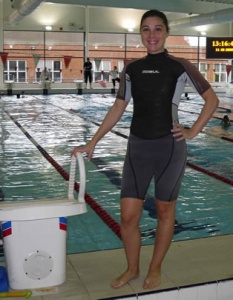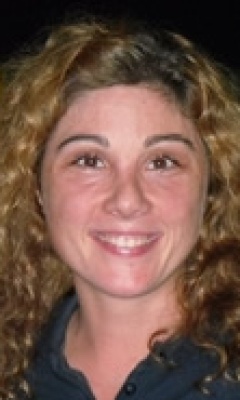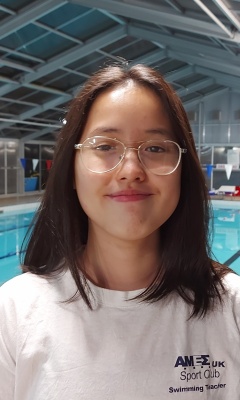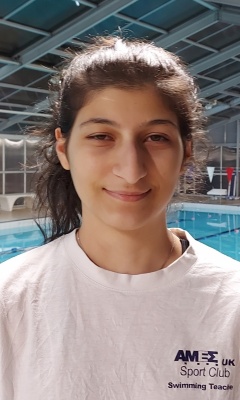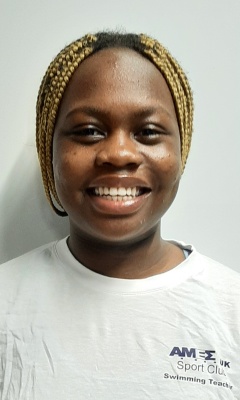Disability Distrimination Act (DDA) Legislation
(Taken from an Information Bulletin from Sport England)
- Since 2 December 1996 it has been unlawful for sports clubs to treat disabled people less favourably for a reason related to their disability;
- Since 1 October 1999 sports clubs have had to make “reasonable adjustments” for disabled people, such as providing extra help or making changes to the way they provide their services; and
- Since 2004 “reasonable adjustments” have had to be made to the physical features of a facility to overcome any physical barriers to access, for example making the reception desk accessible.
Research shows that disabled people are less likely to take part
in sport and physical activity.
This can be for a variety of reasons.
Most importantly disabled people in the same research, carried out by
Sport England in 2000 and 2001, identified that disabled people want to
be physically active and healthy by having more opportunities to
take part in sport.
Recently, legislation and regulations concerning the needs of
people with disabilities has changed.
The most significant in terms of sports clubs are the Disability
Discrimination Act (DDA) and Part M of the Building Regulations.
Many clubs are either not aware of these changes or do not believe
that they are relevant to them.
For most sports clubs there will be implications and for many they
will be very significant, requiring plans to be put in place to ensure
adequate access is provided for disabled users/members in the future.
This information note is designed to bring your attention to these
changes and to encourage you to consider how your club can make the
services it provides more accessible to everyone, whilst at then same
time helping you to meet some of your legal obligations.
How can your club make “reasonable adjustments” to include disabled people?
There are a number of areas that your club can address in order to include disabled people. These are a few to get you started:
- Talk to disabled people
By consulting with and working with disabled people on an ongoing basis your club can start to consider areas of club operation and activity that may need to change. - Establish how accessible your club facilities are
By carrying out an access audit your club can start to plan for any physical changes that may be required. Information on how to do this is shown in the Sport England Access for Disabled People Guidance Note detailed in the further information section. - Consider how your club currently promotes its activities
Does your club produce promotional material that disabled people can access? Alternative formats including, such as large print, audio and electronic formats may be appropriate to ensure that a range of disabled people can access information on your club. You will also need to consider where club activities are promoted – are disabled people likely to have access to it? - Increase the knowledge of key club officials, volunteers and coaches
By providing training in the areas of coaching and club development. Information on local training opportunities is available from your County Sports Partnership or national governing body. - Club Policy
It is important to ensure that the club’s constitution and any related club policies reflect the inclusive approach that needs to be adopted. The Sport England a Club for All document contains a sample policy.
Why is including disabled people good for your club?
- Attracts new members to your club, including potential elite performers
- Increases the number of potential administrators, leaders, participants and coaches for your club
- Provides more revenue/income for your club from wider membership
- Gives your club a positive public image as an organised, fair and forward thinking club
- Provides robust evidence which can support funding applications
- Attracts new partner organisations to your club including groups and organisations you may never have worked with previously
- Ensures that your club complies with the law
The Disability Discrimination Act (DDA) 1995
It is a legal requirement for sports clubs to comply with their
responsibilities under the DDA; those clubs that fully embrace the
spirit of the DDA, to bring about a more open and equitable approach
will reap the benefits; those sports clubs that continue to
ignore the requirements are likely to decline in the long term and could
face the risk of legal action.
The DDA expects clubs, to anticipate the needs of disabled people
to ensure that they are treated equally to everyone else and that they
will have access to services, facilities etc on an equal basis. Sport
and sports facilities are in many cases covered by the Act.
Unlike Part M of the Building Regulations there is no specific test
or approval to demonstrate that the requirements of the Act have been
met and therefore you should seek expert advice from an Access
Consultant or Solicitor for detailed legal advice on the implications
for your club.
The National Register of Access consultants is shown in the further
information section of this note.
From October this year sports clubs covered by the Act will be
required to make ‘reasonable adjustments’ to the physical features of a
facility to overcome any physical barriers to access, for example
providing a ramped approach.
Detailed guidance on the management implications of the Act is
available from the Disability Rights Commission (see where you can get
more help section).
It is anticipated that the scope of the Act will be widened
further in the next few years and therefore, it is in your interest to
address these issues now.
Part M of the Building Regulations has just changed and will have a
significant impact in the future on new, modernized and existing sports
facilities.
Part M requires that all buildings are made accessible not just for
disabled people, but for all members of society, for example older
people or parents pushing buggies etc.
The Regulations require that, not only can disabled people enter
and move around a facility, they should also be able to use to the
facility like everyone else, for example by using the changing
facilities prior to say playing tennis or to be able to listen
and take part in a coaching seminar by using a hearing loop that is
available on site.
For detailed guidance on the design of sports facilities Part M
refers to the Sport England guidance note ‘Access for Disabled People’,
(see further information section.)
Where you can get more help
The English Federation of Disability Sport – www.efds.co.uk
The umbrella organisation which co-ordinates and develops sport for disabled people in England
English Federation Of Disability Sport
Manchester Metropolitan University
Alsager Campus
Hassall Road
Alsager
Stoke on Trent
ST7 2HL
General Number 0161 247 5294
Fax Number 0161 247 6895
Minicom Number 0161 247 5644
Email federation@efds.co.uk
Sport England – www.sportengland.org
The organisation that provides strategic lead for sport in England.
3rd Floor Victoria House
Bloomsbury Square
London
WC1B 4SE
Tel 08458 508 508
Monday-Friday, 8am to 6pm
Fax: 020 7383 5740
Email: info@sportengland.org
Disability Rights Commission – www.drc-gb.org
The Disability Rights Commission (DRC) is an independent body
established in April 2000 by Act of Parliament to stop discrimination
and promote equality of opportunity for disabled people.
FREEPOST MID02164
Stratford upon Avon
CV37 9BR
Telephone: 08457 622 633
Text phone: 08457 622 644
Fax: 08457 778 878
National Register of Access Consultants – www.nrac.org.uk
The NRAC provides details of accredited individuals free of charge
to clients.
The NRAC comprises appropriately qualified and experienced access
consultants and auditors who have demonstrated their expertise in access
matters to the satisfaction of the NRAC’s Admissions Panel.
70 South Lambeth Road,
London
SW8 1RL
Tel: 020 7735 7845
textphone: 020 7840 0125
fax: 020 7840 5811
email: info@nrac.org.uk
The Centre for Accessible Environments – www.cae.org.uk
The Centre for Accessible Environments (CAE) is an information
provider and a forum for collaborative dialogue between providers and
users on how the built environment can best be made or modified to
achieve inclusion by design.
Centre for Accessible Environments
70 South Lambeth Road
London SW8 1RL
UK
Tel/textphone:(+44) 020 7840 0125
Fax:(+44) 020 7840 5811
email: info@cae.org.uk
The Central Council of Physical Recreation – www.ccpr.org.uk
Is the umbrella organisation for the national governing and representative bodies of sport and recreation in the UK
Francis House
Francis Street
London
SW1P 1DE
phone 020 7854 8500
fax 020 7854 8501
or email info@ccpr.org.uk
Resources / Further Information
From Sport England
Access for Disabled People Guidance Note Access Audit Sheets
Adults with a disability and sport, national survey 2000-2001
Running Sport Workshop – ‘A Club for All’ – Available through Coachwise.
Tel:0113 201 5555
Club Health Check – London Sports Forum for Disabled People
Tel: 0207 354 8666
Disability Discrimination Act 1995 Code of Practice on Rights of Access, Goods, Facilities and Services.
www.drc.gov.uk.
Tel: 08457 622 633
Disclaimer of liability
The information on these pages is provided free and for information only. Whilst believed to be correct, it is in no way comprehensive and is not intended to be relied on as formal legal advice. You should not act or rely on this information without seeking professional advice from a lawyer or organisations like the Disability Rights Commission. No liability is accepted therefore for any errors, or for any losses that may be incurred if it is relied on.
Published July 2017 (to be reviewed July 2019)

